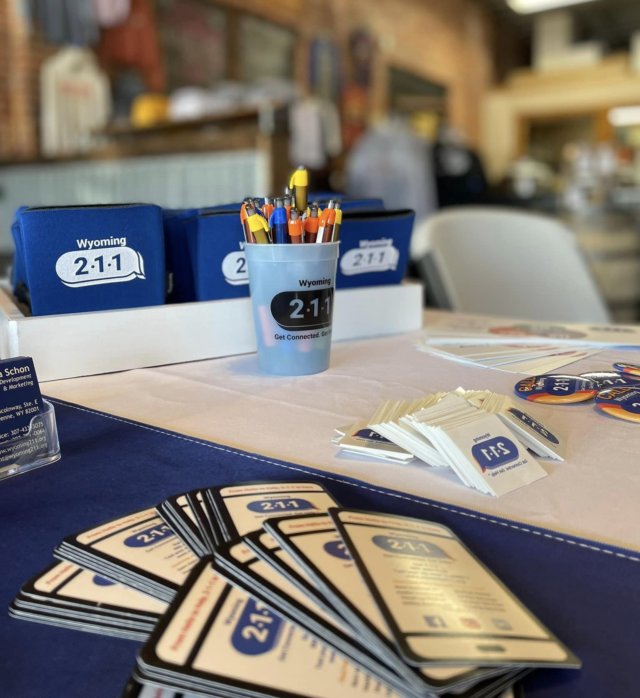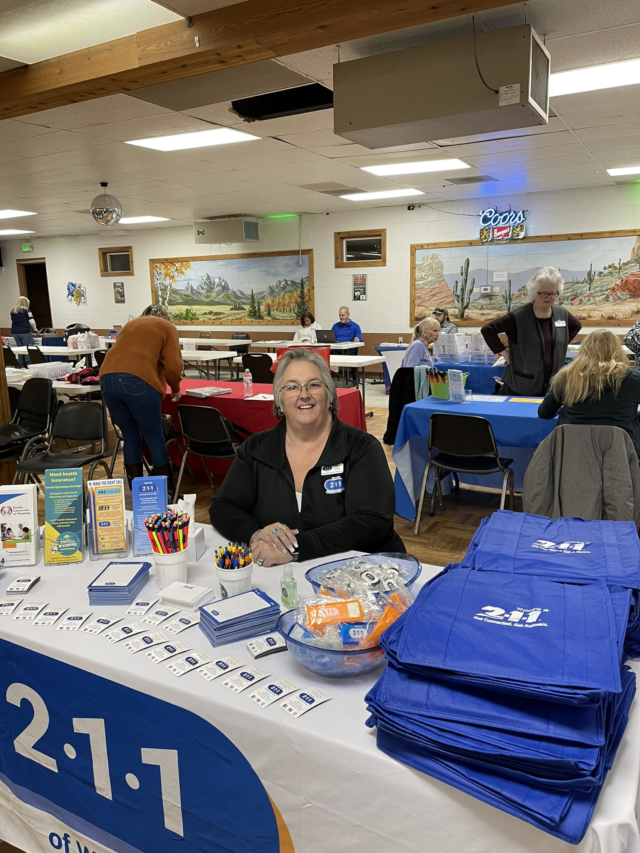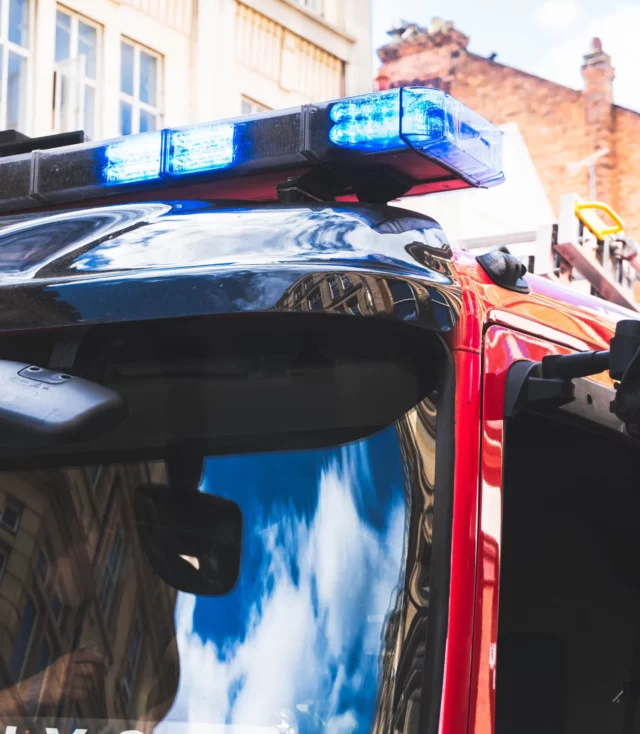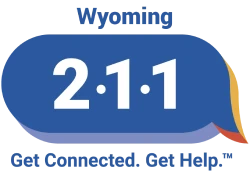
About our organization
Learn what Wyoming 211 is about and what its values are.
Help starts here
Serving 100% of Wyoming’s population, Wyoming 211 connects people with community, health and disaster services through a free phone service and searchable online database. Using the power of technology and innovation, we connect people to the help they need. Learn more about our services below.
About 211
Wyoming 211 provides every person in communities across the state with a place to turn when they need answers to life’s challenges, big or small. 211 is a free, anonymous, helpline offering listening support, information and referral.
Our professional, trained staff connects people in need with nearly 2,800 programs and services that are available to help them. Bilingual staff and telephone interpreter services make sure that callers can talk with us in the language of their choice.

Did you know?
Established as a 501(c)(3) in 2011, Wyoming 211 is the only comprehensive agency in the state of Wyoming that provides individuals and families with all of the critical connections to health and human services that they need in just one call, email, or text. This helpline is available to every individual and family in Wyoming.
Every hour of every day, someone in Wyoming is searching for help or services. Knowing where to go is the first step in getting the help you need.

When is Wyoming 211 available?
211 is available Monday – Thursday 8AM to 6PM, and Friday 8AM to 5PM. Callers outside standard business hours will receive a follow-up call the next business day.
Service is available statewide by dialing 211 or 888-425- 7138 during normal business hours and online anytime at wyoming211.org.

What's the difference between 211 and 911?
Wyoming 211 is a free, easy-to-remember phone number connecting callers with health and human services in their community.
911 is reserved for emergencies, police, ambulance, and fire.

The value of Wyoming 211
Until Wyoming 211, there had been no single, comprehensive statewide provider of information and referrals for Wyoming. Faced with multiple organizations providing a broad range of social services, people often don't know where to turn or how to start. In many cases, they end up going without these necessary services. When an individual dials 211, they receive personalized information from a live community resource specialist. The specialists listen to each individual, making sure to match them to services they are eligible for before referring them. The ultimate goal of Wyoming 211 is to improve the health and welfare of Wyoming’s citizens by connecting them to appropriate services. Wyoming 211 can be used directly by consumers as well as by service providers and case managers for referral information. Wyoming 211 is available for anyone in Wyoming.

Residents
- Contributes to the overall well-being of participants, their families, and their communities.
- Delivers compassionate, respectful, and quality services to all people
- Offers an easy to remember and easy to use three-digit number (2-1-1).
- Connects you to help in your preferred method: call, chat, email, or text.
- Holds the most comprehensive and up-to-date database of community, health, government, and social services.
- Links new residents to the community and helps them access services.
- Eliminates confusion and frustration about where to go for help.
- Time saved for individuals and families by having a one-stop helpline center for a variety of services.
- Improves access to health and human services.
- Provides information about emergencies services pre, during, and post disasters.

Businesses, Nonprofits and Communities
- Avoids inappropriate calls to agencies that use staff time; 211 refers clients based on the agency’s eligibility standards
- Reduced time spent by employees on researching resources for themselves or their families during work hours, thereby improving productivity
- Provides managers and human resource professionals with a tool to help employees experiencing personal issues that impact their work and well-being
- Shares customized data reports to help with planning, agency referrals, grant applications, and much more
- Improves community planning – call statistics, unmet needs, gaps in services
- Ability to disseminate public health and crisis preparedness information
- Helps to reduce expensive non-emergency calls to 911
- The benefits of 211 systems increase over time as new innovative uses are employed for the 2-1-1 number
